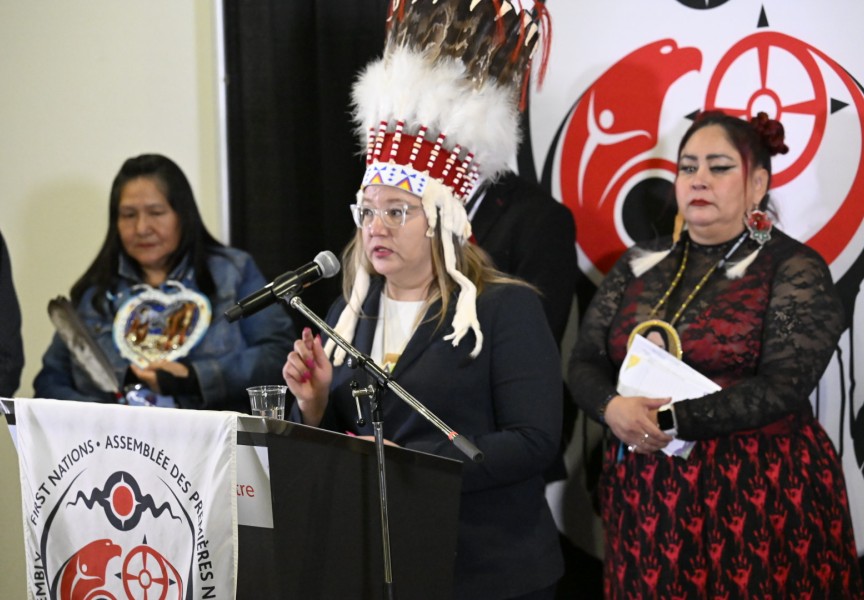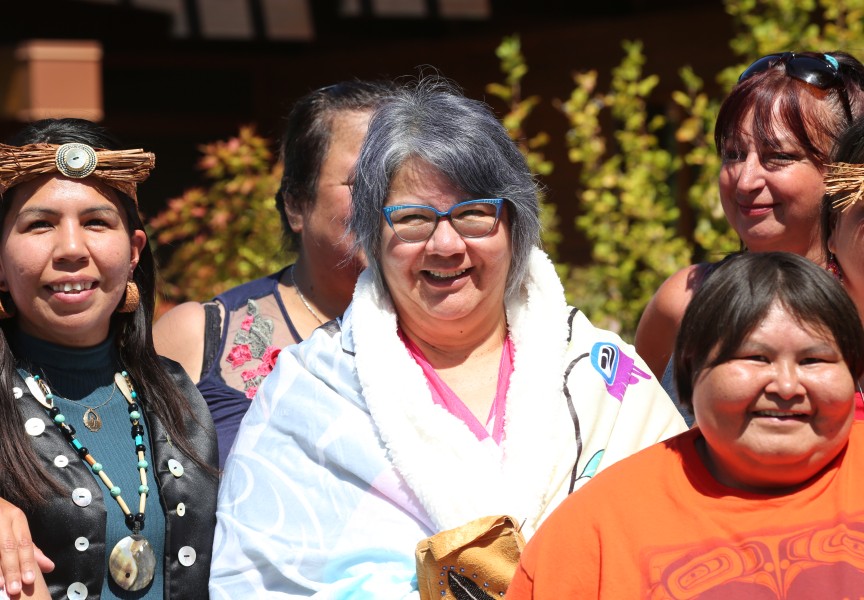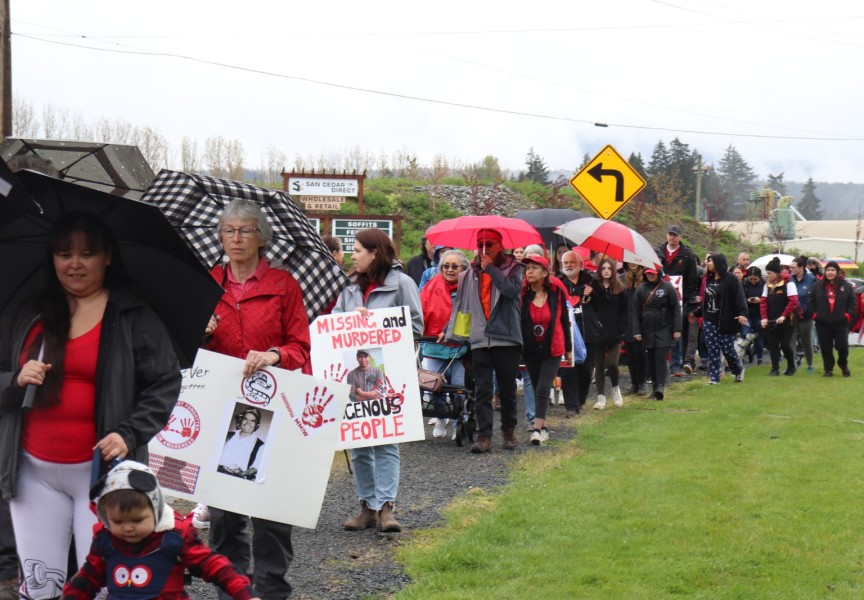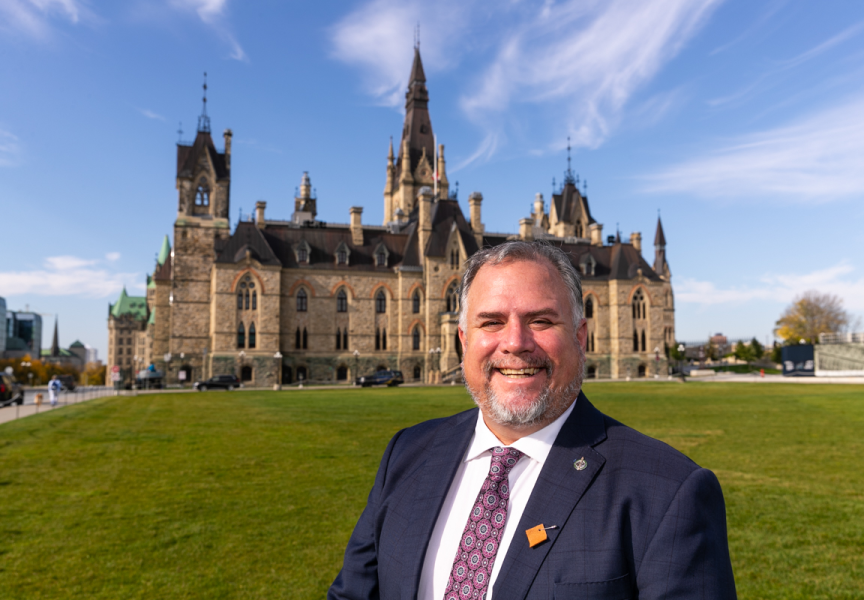As if there wasn’t enough poverty in Canada’s aboriginal communities. Now, federal cutbacks have further impoverished the most vulnerable of First Nations citizens, who must deal with up to 50 per cent less in their social assistance benefits.
Ahousaht Councillor Greg Louie was acting chief at the time of this interview. He said, according to Ahousaht’s Social Development worker Robert Atleo, the cutbacks in the band’s social assistance program originated with Aboriginal Affairs and Northern Development Canada (AANDC).
The biggest hit the program took was to the isolation allowance. Ahousaht is a remote island village accessible only by boat or float plane, so now people face the additional expense of water taxi fares (a minimum $50 return trip for one adult) in order to get to the nearest bank and grocery store.
A single person, for example, would receive $191 in a monthly isolation benefit.
“That amount would cover their return water taxi, fuel expenses to Port Alberni, one night’s accommodation and meals in order to take care of their shopping and bill paying needs, and all of that has been taken away.”
Without the isolation benefit, the monthly social assistance benefit for a single person is nearly cut in half. Prior to the cutbacks, typically, a single person received a monthly benefit of about $400. Now that same person must get by on $235 a month. Minus water taxi fares needed to get to Tofino just to cash the cheque, the single person is left with $185.
In addition to the isolation benefit cuts, social assistance recipients no longer have the option of supplementing their monthly cheque by working incentive hours. Prior to April 2013, people on Social Assistance could work in the community up to 10 hours per month to earn an additional $100. The program will no longer pay incentive work hours unless the recipient is disabled, but even that portion of the benefit has been slashed.
According to Louie, a disabled person on social assistance could work up to 50 hours a month and be paid $500 in incentive hours.
“Disabled people can still do incentive hours, but it’s been reduced to 10 hours per month, meaning they can only top up their benefit by $100,” said Louie.
While the cuts have created hardship, Louie says the people, for the most part, have been respectful to band staff and chief and council.
“This is the doing of AANDC, the federal government,” Louie said. “We wouldn’t do this to our own to make poor poorer,” he added.
Ahousaht chief and council is working with other Nuu-chah-nulth chiefs and with the Leadership Council of BC and the Assembly of First Nation to find solutions.
Louie said nobody was prepared for the cutbacks because they came unannounced.
A woman, who wished to remain anonymous, said she didn’t find out about the cutbacks until April 25, the day she was to receive her cheque. Her family of three lives with extended family. There are two small children and an elder in the home, along with other adults.
“I was kind of mad,” she said. “We’re barely able to make it on the previous amount of about $700 a month and then it was cut down to $400.”
Splitting expenses with other adults in the house, the family got by, but now with one employed adult being laid off they’ve had to disconnect their television and internet services and do without a lot of other things.
“My child is growing fast,” said the woman. “We used to be able to get her a couple of outfits a month, before April, but now it’s hard; they grow out of clothes so fast,” she added.
The family is grateful for the Free Store set up by Marceline Jack; they’ve been able to find clothes for their child there.
“They set up a food bank here and we were able to use it; it was helpful. I’m glad they got it started,” said the woman. “It’s something we didn’t have... It just seems like we’re constantly borrowing,” she added.
The woman has skills that make her employable, but there are no local jobs for her skill set. The local college has been closed for years, so they can’t upgrade their educations.
“We’re thinking of moving to town where I can work and he can get his upgrading,” she added.
While the cutbacks have caused a lot of stress for everybody, it brought out the best in many people. Everybody started to come up with ways to help, including the fishermen who freely give some of their daily catch, Louie said.
Another initiative set up by grassroots people is the food bank. Genny John, an Ahousaht mother and grandmother, started the food bank. Together with Donna Thomas, the pair organizes food drives and distributes food in the community to those in need.
According to Louie, Genny and Donna are concerned mothers from the community who worry that children are going hungry as parents on income assistance struggle to meet the basic needs of their families.
“It is our children who are suffering the most,” said Donna Thomas, who goes from her job at the elementary school to volunteer at the food bank.
In a recent post on their Facebook food drive they wrote, “We have a food shortage here in Ahousaht; we have zero food security and difficulty in access. Recent cuts to social assistance by half have made it hard for our families here.”
That weekend, several Tofino businesses stepped up and donated food to the Ahousaht food bank.
In an effort to help out, Joe and Sacheen Rampanen have started up a community garden called Maaqtusiis Muuschim Garden and they run a community composting program.
Every week Joe makes his rounds in the community gathering compost buckets. Every now and then the couple puts a call out for help in the community garden, where they grow fruits and vegetables to share with anyone who needs it.
In Oclucje, another remote community just outside of Zeballos, the people are struggling with social assistance cutbacks. It affects about half the village, anywhere from 15 to 20 members, along with the transient population.
“Living where we are, far from amenities, puts us at more of a disadvantage,” said Ida Mills, Nuchatlaht First Nation administrator.
The cost for community members to travel to Campbell River or Port McNeil is high.
“Our quality of life will be totally compromised even more; the more hardy will cope, but our children and elders will bear the brunt,” said Mills.
Job creation dollars are hard to come by for the tiny community and so jobs are scarce.
“Intense socio-economic development meetings must occur in our northern regions to have some meaningful, long-term permanent employment positions for our people,” she said.
Mills went on to say that emphasis needs to be on community development, and programs need to occur simultaneously to have a lasting and enduring impact, including solid plans for sustainability in all areas.
“The concept of merely providing funds for administration needs to be enhanced immensely to avoid merely administering our own misery,” said Mills.
According to Aboriginal Affairs and Northern Development Canada, the 2010/2011 on reserve Income Assistance dependency rate was about 34 per cent compared to some five per cent for the rest of the Canadian population.







